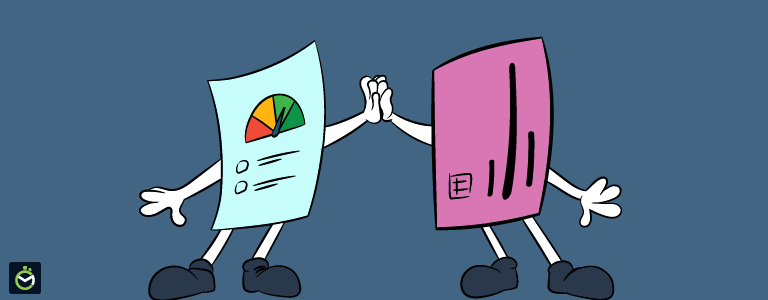Why Does Your Credit Score Change?

There are a lot of reasons why your credit score changes even when you do not take any action for the same. Your credit scores are a snapshot of a specific time. The scores change based on your credit behavior and the information that you provide for your credit report.
Simple factors such as the passage of time, and a loan application can change your credit score. The impact on your credit scores by these factors can either be positive or negative. A positive impact and an increase in the credit score are always preferred. While some fluctuation in the credit score is normal, inaccurate information provided or any negative impact can ruin your credit score. Read on to know what factors affect your credit score and how.
Below are some reasons for significant change in credit score
-
Credit History Duration
The length of credit history is one of the prime factors that affect credit score. As and when the individual makes a payment using a credit card, the credit score keeps on changing. If the debt is repaid on time, then the credit score will improve. Ideally, a good credit score is above 600 and it keeps on increasing with the passage of time and transactions being done. If any repayment has been missed, the same will vanish with the passage of time and further repayment of debts.
-
Debt Repayment History
Timely repayment of debt is a prominent factor that affects the credit score of an individual. Loan applicants who are seeking loans in the near future should be particular about the repayment of debt. The individuals who pay their EMIs timely will always have a better credit score than the ones who do not. The timely repayment will in turn allow larger amounts of credit and at more attractive rates.
-
Different Credit Bureaus
There are different credit bureaus and they provide credit scores depending on different parameters. There can be a variation in the credit scores provided by each credit bureau. While applying for a loan, you should know the credit score by which the credit bureau is accepted by the financial institution.
-
Credit Score of Specific Industries
There are financial institutions that generate credit reports based on factors that are different from general industries. For instance, if you are applying for a home loan, then only your home loan repayment records are taken into consideration.
-
Debt Ratio
There are some individuals that seem to exceed the credit ratio. For a few times, this will not affect your credit score. But, the credit utilization for any individual is a maximum of 30%. If you exceed 30% every month consecutively, this will affect your credit score negatively. So, to maintain a good credit score, you must utilize your credit wisely. To avoid this scenario you can also increase the credit limit on your credit card.
-
Repeated Enquiries
If an individual faces enquiries related to credit history repeatedly, then it affects the credit score adversely. This happens when the individual is trying to borrow very often. If you borrow very often and your applications are rejected on a regular basis, this shows that you are credit hungry and hence the negative impact on the credit score.
-
Public Records
Adverse public records such as negative court judgements, and tax liability enquiries may affect your score negatively. Hence in case of any such liabilities, it is best to settle everything before the information becomes public. This can prevent your score from declining.
-
Changes in Debt Reports
As soon as the individual starts paying off the EMIs for a loan, the debt reduces and the credit score increases. Once the loan is completely paid off, the credit score is either restored to what it was before or sometimes increases. This depends upon the credibility of the borrower.
-
Opting for New Cards
There are some individuals who opt for multiple credit cards to fulfill their needs. This may also be one reason why there is a drop in the credit score. It is considered that an individual with multiple credit cards does not have control over spending. This makes the individual look like they will utilize an excess of credit. It is thus advised that you refrain from using multiple credit cards unless it is necessary.
-
Exceeding Credit Limit
Some individuals tend to exceed their credit limits very often. This gives a picture that you are not able to manage your finances very well. The credit bureaus will record this information and it will have a negative impact on your credit score. You can keep your expenses in check and avoid this negative impact.
-
Experiencing Bankruptcy or Foreclosure
Bankruptcy is a legal process that is initiated by the borrowers themselves to get relief from debt payments. This is the worst-case scenario for an individual’s credit profile. Foreclosure is when your mortgage lender takes possession of the asset if you have not paid a series of dues. Both these scenarios might change your credit profile significantly and may even disqualify you from borrowing further.
-
Closing a Credit Card
You should think twice before closing a credit card you don’t use. This might increase the utilisation ratio and also have a negative impact on your credit rating. Closing a credit card will remove the credit limit from your available credit. So, you should maintain the utilization ratio and not close any credit cards unless it is very expensive.
Conclusion
Changes in credit scores are normal. There is no need to worry about small fluctuations. But, that being said, you should check your credit score at least monthly. Remember that a change in the credit score is an indication of a change in the information. If there is any major change, then you should know the exact reason for the change and the trigger for the same.